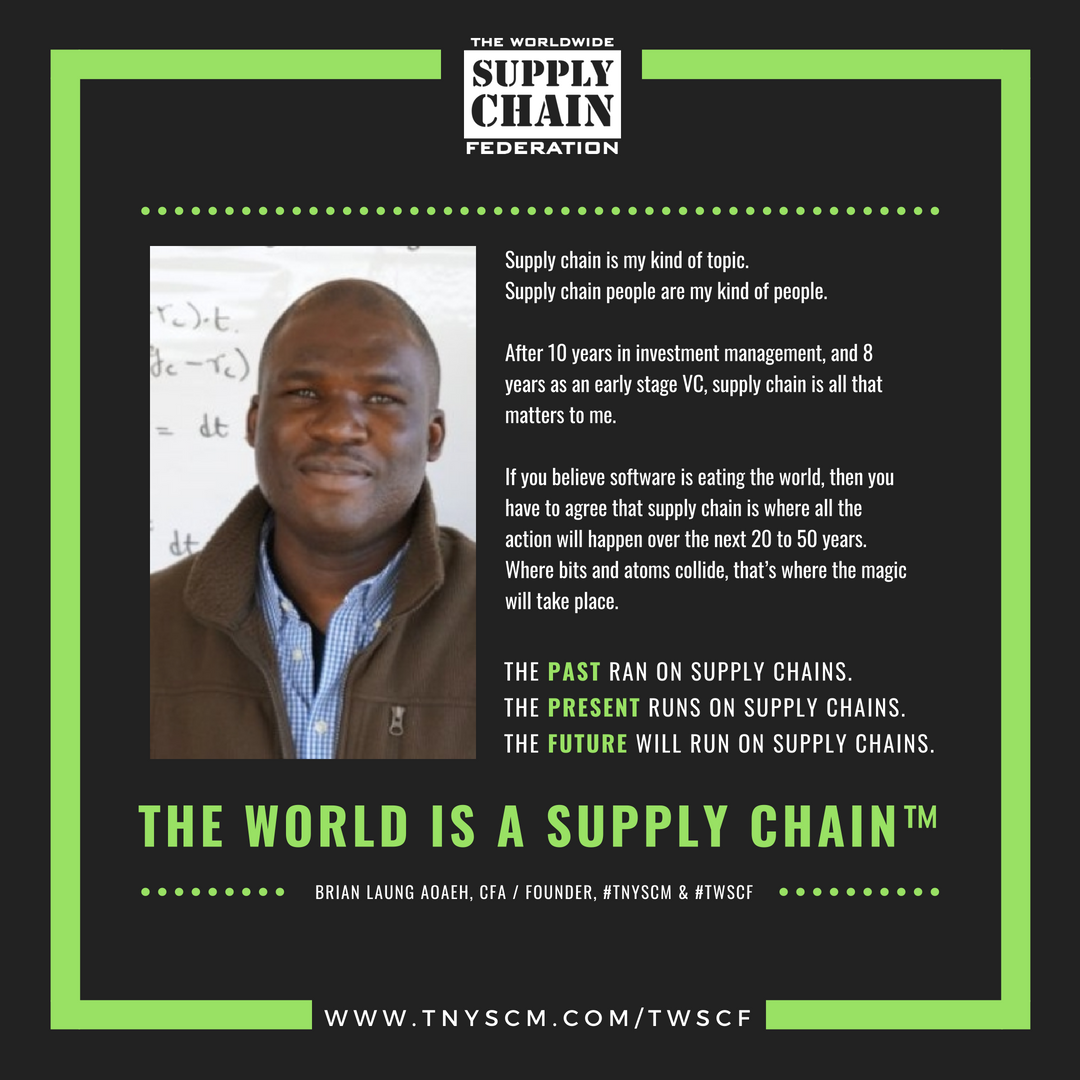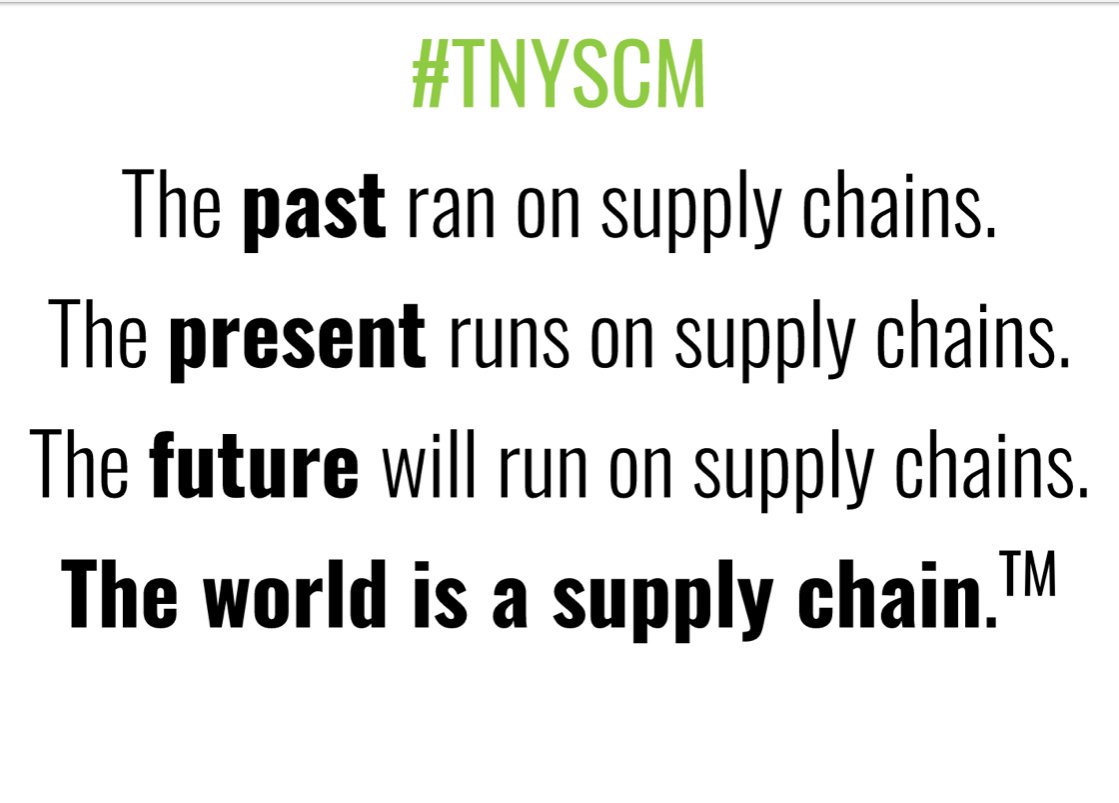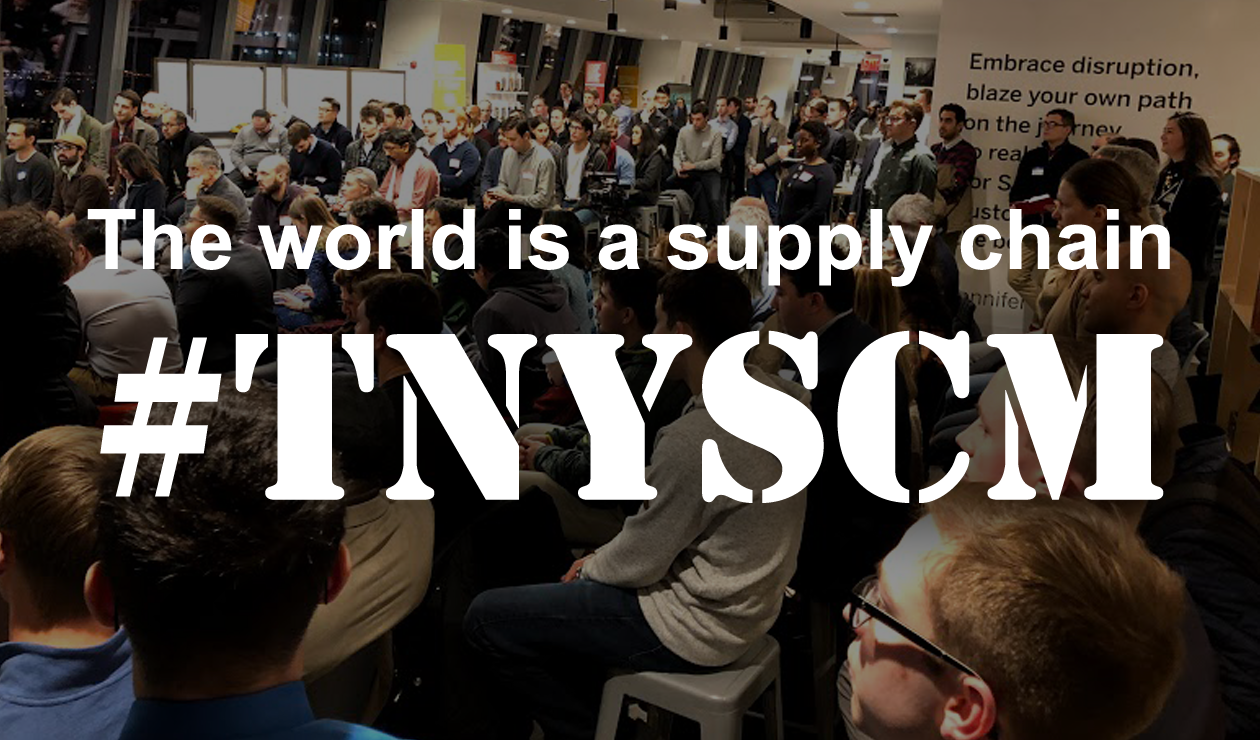Disclaimer: This blog post reflects my personal opinions only. It does not represent the opinions of REFASHIOND Ventures, or REFASHIOND CO:LAB. It does not represent the opinions of The New York Supply Chain Meetup, or The Worldwide Supply Chain Federation. It does not reflect the opinions of any other person who is associated with any of those entities. This blog post does not represent the opinion of any other individual or organization that is mentioned by the author.
Acknowledgement: I am grateful to Anisha Surana, of Locus, for helping me with research about Bangalore, and India. She’s also been the point-person as we’ve worked across time zones to get things going in Bangalore. She’s been phenomenally helpful, even when our team in NYC has been stretched for time and other resources, and therefore less responsive than we should be.
Introduction
After thinking about value chains and supply chains since August 2014, I decided in August 2017 that I should focus the remainder of my career as a venture capitalist on becoming a supply chain specialist. So on August 23, 2017 I decided to start The New York Supply Chain Meetup. You can read about how I got there here: #UnderConstruction | Why A Supply Chain Meetup in New York? In summary: New York City does an enormous amount of business with the rest of the world. Therefore, it is a wonderful laboratory for stress-testing technological innovations for supply chain. Moreover, it is also a great gateway for supply chain tech startups that seek to grow in the North American market.
We Started In NYC! We optimize for enthusiasm.
Friday, November 16, 2018 will mark one year since our first public event, which you can read about here: Progress Report | #TNYSCM Minimum Viable Launch – Building A Supply Chain Community. We are celebrating that milestone with an event on Thursday, November 15 which you can read about here: #TNYSCM09 / Keynote, Showcase & 1 Year Anniversary Celebration.
Over the course of our first year:
- Our kickoff on November 16, 2017 attracted about 150 people.
- We have grown to 1,370+ members in NYC.
- We typically have 100+ people attend each meetup . . . and they do not show up for the food or alcohol, as one of our members who has travelled from Philadelphia to attend our meetups on more than three occasions told a friend who was visiting from Europe. Our gatherings are very engaging affairs, and people have always tended to stay well after the end of each event to talk to one another.
- We have helped some of our members connect with potential customers, and some of our speakers have gone on to raise significant amounts of capital from VCs or are on the verge of raising capital from early stage investors.
- With far less in terms of resources, we have become the biggest and most active community on Meetup.com that focuses on supply chain, technology, and innovation. We’re more than 10x as big as the Supply Chain Meetup of NYC – It turns out copying our name and our mantra was insufficient to foster growth, and they have not had an event since April 2018. We’re more than 3x as big as the Future of Supply Chain & Logistics which is in Sunnyvale, California and is organized by Plug and Play Supply Chain & Logistics – They have not organized an event since October 2017; This is pretty amazing given that Plug and Play’s many corporate partners are reported to each pay $300K per year for the privilege of being part of that community. To be fair to Plug and Play, perhaps they have invested in a proprietary platform and so meetup.com is no longer a fair reflection of their size and scale.
- We published The Worldwide Supply Chain Federation – Our Manifesto as a rallying cry to gather people who share our obsessive enthusiasm for supply chain, technology, innovation, and startups.
We started The New York Supply Chain Meetup with a deceptively simple but ambitious mission:
To nurture and grow the world’s foremost open, global, multidisciplinary community of people devoted to building the supply chain networks of the future — starting in NYC.
Soon after that we built on that mission statement by developing this vision:
To create a global movement; the largest community on the planet of people obsessed with supply chain technology, who are trying to develop new products and build new companies – while learning from each other, and supporting one another.
Now, We Are Launching A Community In Bangalore!
During this year of bootstrapping our community, we have built on our early progress in NYC, and are now on the verge of launching chapters outside New York City. On November 24, 2018, The Bangalore Supply Chain Meetup will have its public launch, establishing itself as the first international chapter of The Worldwide Supply Chain Federation.
We are excited that Bangalore is the next chapter to launch after NYC. In all the time that I have been studying about the economic impact more efficient supply chains can have on the world, it has become clear to me that the developing world stands to benefit the most from technological innovation in supply chain. As a boy growing up in Northern Ghana and Northern Nigeria, I was always amazed by the durability of buses made by Tata Motors. I find it personally meaningful, that a supply chain community I am helping to start is building its first international presence in the home of Tata Motors. Here are some highlights about India, and Bangalore specifically:
- According to the IMF’s Country Focus (August 2018): “India’s economy is picking up and growth prospects look bright—partly thanks to the implementation of recent policies, such as the nationwide goods and services tax. As one of the world’s fastest-growing economies—accounting for about 15 percent of global growth—India’s economy has helped to lift millions out of poverty.”
- Information technology firms in Bangalore employ about 35% of India’s aggregate pool of about 2.5 million information technology professionals. Bangalore’s IT firms account for the highest IT-related exports from India. Bangalore’s growth as India’s IT capital has been helped by heavy investments by India’s Central Government as well as support from the Karnataka State Government. Bangalore accounts for 87% of Karnataka’s economy and 98% of the state’s software exports.
- According to a 2016 report from the Associated Chambers of Commerce & Industry of India; The country could save $50 billion if logistics costs as a percentage of India’s GDP were to decrease from 13 percent to 9 percent. In other words, every percentage point gain in supply chain logistics efficiency could lead to $12.5 billion of savings for India’s economy. That is $12.5 billion that could be invested in more productive areas to spur more economic growth in India.
What is even more exciting than that? Our chapter in Bangalore is being launched through the dedicated effort of the team at Locus. I met Nishith Rastogi, Co-Founder & CEO of Locus, in June 2018, in NYC, while he was visiting the United States. We originally planned to chat for about 30 minutes. Instead we wound up spending nearly two hours chatting about the problems Locus is solving for its customers. This is a problem I have been interested in since 2016 – In fact, I discussed it at considerable length when I published: Industry Study: Freight Trucking (#Startups) and Updates – Industry Study: Freight Trucking (#Startups).
According to CrunchBase: Locus is an intelligent logistics automation platform with a built-in route planning and vehicle allocation engine which improves consistency and efficiency of operations, higher customer satisfaction with high adherence to service-level agreements (SLAs) & last-mile live tracking. The platform helps companies and enterprises in e-commerce, food delivery, fast moving consumer goods (FMCG) and other verticals to automate and optimize their logistics. The product suite comprises of a route deviation engine, order dispatch automation, a field user app, route optimizations, scheduling, tracking for end-customer, predictive analytics and other services and products. Locus offers the entire technology stack, in the form of a platform as a service.
According to CBInsights; Locus has raised $6.75 million from angel investors and institutional venture capitalists in India, Singapore, Japan, and California. Locus is also a graduate of Microsoft ScaleUp. When I met Nishith, he told me that the company was growing its business very rapidly in India, Indonesia, and other markets in Asia. Locus is now looking to grow it’s business in the United States, and has opted to begin that process by establishing a presence in New York City.
Finally, Nishith and I talked about the idea that propelled the formation of The New York Supply Chain Meetup. He grasped it immediately, and expressed a desire to build a community in Bangalore, one that would be connected with our community in New York City, and that would also subsequently be connected with every other chapter that launches in other parts of the world.
I explained that one of the goals of the community we were forming in NYC was for startups like Locus, and entrepreneurs like Nishith and his co-founders, to have a ready-made community of like-minded and helpful people they could connect with in NYC once they were ready to establish a presence here. That benefit should also work in reverse . . . Obviously, that becomes more effective if the community in NYC collaborates actively with a similar community in Bangalore. That is how the idea for The Bangalore Supply Chain Meetup (#TBLRSCM) was born. It is a microcosm of how we hope The Worldwide Supply Chain Federation will function in helping early-stage startups building new technologies and new innovations to make global supply chains more efficient connect with New York City for customers, for talent and expertise, and for financial capital . . . . . No matter where they were founded, if they are expanding into the United States, we want them to call NYC home first, and we will become the community that welcomes them here.
Since our conversation in June, Nishith and his team at Locus have been hard at work putting things in place for the public launch. We would not have made it this far without the dedicated hard work of the team at Locus. They have taken on this initiative on top of their already very demanding responsibilities.
Our team in NYC could not be more excited about seeing The Bangalore Supply Chain Meetup get off the ground. You can help by telling anyone you know in Bangalore who may want to be part of the community that is forming there to look for the group on meetup.com. You may also signup for the launch of The Bangalore Supply Chain Meetup on the event page here.
What Problems Will Our Community Help To Solve?
Some of the complaints I’ve heard from startup founders who are building new technology for the supply chain market, or new technology-enabled products with supply chain functionality are:
- How do we find enterprise partners for our first pilot? How do we find the individuals who will be our internal champions as we try to win our very first enterprise customers?
- How do we find supply chain professionals who can help us understand how our product would be used by professionals in the industry?
- How do we identify talented people who understand technology but also understand supply chain so that we can recruit them to join our team?
- How do we find professional service providers who understand the nuances of what we’re trying to do and can help us with tailored advice?
- How do we find other investors like you?
From large companies we’ve heard comments like; We’ve been grappling with this problem for decades, and we can no longer afford to do things the way we have done them in the past. However, we do not know the people doing the kind of research that could lead to a better solution. Do you know anyone we may not have heard about who’s thinking about this?
So, as part of The New York Supply Chain Meetup, and ultimately as part of The Worldwide Supply Chain Federation, we will create a partnership network which will help us tackle those sorts of concerns very directly.
The Worldwide Supply Chain Federation is the collaborative, and mutually supportive coalition of grassroots communities focused on technology and innovation in the global supply chain industry. The New York Supply Chain Meetup is its founding chapter.
We wouldn’t have made it this far without the generous support of the following people and organizations;
- Jessica Lin and Allie Felix from Work-Bench: Who reached out to me even before I had clearly organized my thinking. Allie now runs programming and partnerships at the Embarc Collective. Work-Bench sponsored us by donating space for our events during our first year.
- Michelle Shen from UPS: UPS supported us by contributing towards food and beverage for our launch last November. Michelle has also been a sounding board for us when we’ve had questions about how large organizations like UPS might think about working with nascent communities like ours.
- Akshata Philar from SAP.iO. SAP.iO hosted us on alternate months at their office in NYC, providing space as well as food and drink for our members. Her colleague, Kange Kaneene of SAP Ariba has road-tested some of our ideas as we’ve worked on growing during the course of 2018.
- Matt Turk of FirstMark, and founder of Data Driven NYC, and Jon Zanoff of Techstars, and Founder of Empire Startups, both graciously shared their individual experiences of getting startup communities off the ground in NYC.
- My former teammates at KEC Ventures/Particle Ventures, indulged me when I told them I had started a supply chain meetup – this is after I had decided to become a supply chain specialist. KEC Ventures/Particle Ventures supported the meetup financially by covering the cost of food and drink for some of #TNYSCM’s events. My teammates gave me ideas about how to get things off the ground, and Susan Belding came to my rescue by helping me figure out some of the event-day logistics as we got going.
Last but not least: Lisa agreed to become my co-founder when I called her in a “panic” on August 24, 2017. We have been learning about supply chain, technology, and innovation together since we first met in June 2016. We are now in the early days of building a specialist supply chain early-stage technology venture capital firm. She shares my obsessive enthusiasm for all things supply chain + technology + innovation. I couldn’t have done this without her help.
We have been lucky to have a large team of volunteer co-organizers: Brian Lindquist, Paula Cadman-Mendoza, Christian McKenzie, Nathan Sjoholm, Tina Kang, Santosh Sankar, Joy Fan, Elizabeth Salcedo, Leslie Cohen, Natan Reddy, and Daniel James. I have a firm belief that nothing of significance can be accomplished without the concerted and significant effort of a team. As I look back on the past year, I am grateful for the contributions from every member of our team. It’s through their efforts that we have been able to accomplish so much with so little.
Looking Forward: Our Plans For 2019
We figured that 2018 would be our experimental year: We have small groups of people who expressed interest in forming communities in Vancouver, Singapore, and Athens over the course of 2018. However, we have deliberately moved slowly in order to allow the chapter that demonstrates the most enthusiasm to get organized first, while we learn the lessons we can from that experience. We expect 2019 to be a year in which The Worldwide Supply Chain Federation grows by launching at least one additional chapter per quarter . . . In other words, I expect that we will have at least 6 active chapters around the world a year from now. Ultimately, our goal is to bring our community together for an annual conference in NYC, starting sometime in 2020.
If you would like to help us make this happen: Consider joining one of the communities we’ve already started, or consider starting one where you live. We can always use more volunteers. We do not yet have a committed sponsor. If you’re a company that wants to discuss becoming a sponsor, let us know. Our contact information is available via our manifesto, and we’re easy to find online.
Forward!

About Locus: Locus is a decision-making platform in the supply chain that automates human decisions required to transport a package or a person, between any two points on earth, delivering gains along efficiency, consistency, and transparency in operations. The company’s premier logistics optimisation solutions include route optimisation, real-time tracking of orders, insights and analytics, optimised permanent journey plans and automated shipment sorting.
Update #1: November 8, 2018 at 12:45 to update disclaimer, add link to event page at Locus’ website, and add “About Locus” section.
Update #2: November 9, 2018 at 22:53 to update event links for #TBLRSCM in order to avoid confusing people.


